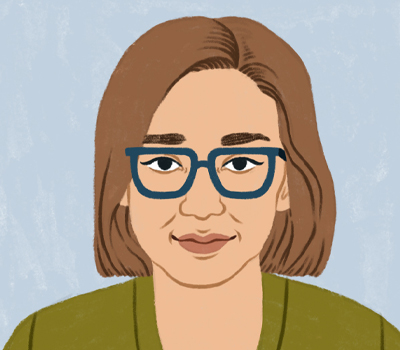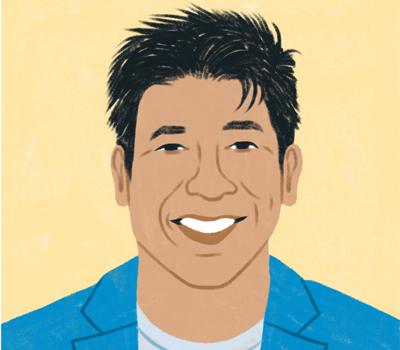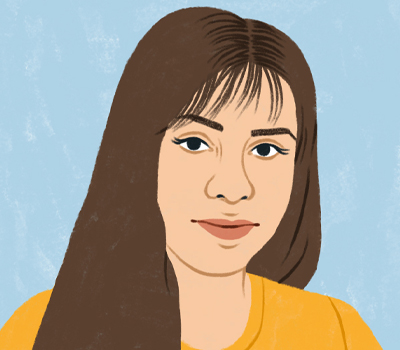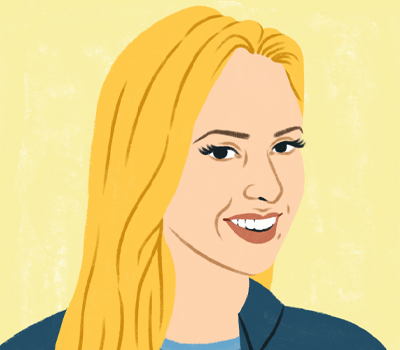#InvestingTruths: How I Got Started in 2020
Written by The Inspired Investor Team | Published on December 10, 2020
Written by The Inspired Investor Team | Published on December 10, 2020
The COVID-19 pandemic shook things up in many aspects of our lives, including investing. Thousands of Canadians began investing for themselves through the pandemic. For some new investors, market volatility meant opportunity. In fact, here, a few new investors share their stories and — from the importance of practice to setting your own rules — they share what they're learned so far.
Hannah on taking advantage of market volatility

“I thought this would be an opportunity. I wanted to prepare for present and future." – Hannah1
On taking the leap: “It's really sad that COVID has happened, but I thought this would be an opportunity," says Hannah, 33, an HR specialist living in Toronto. Pre-pandemic, Hannah had been thinking of ways to put money away for her future. “What happens when I retire?" she pondered. “What if I get laid off?" She also wanted to start saving up for a house down payment. In March, people around Hannah began investing for themselves en-masse, including co-workers and her boyfriend. She, too, decided to try to take advantage of the unique moment. “I just jumped in," she says. “I was like, okay, whatever. I just want to start it. Even if I'm losing it in the beginning, it would be a good lesson."
Biggest hurdle: Hannah saw a huge gap in her knowledge, so she got to work filling it. The internet was chock-full of relevant information, but identifying reputable sources has been a challenge. “There are too many resources, too much information, just flying around the internet," she says. (Learn how to identify misinformation here.)
Key lesson: To make sure she doesn't get sucked up in the maelstrom of information available to her, Hannah sets her own trading rules, like having a sell price in mind before she buys. But, she admits, “I wouldn't say it's always easy to follow." Hannah cites the example of barring herself from penny stocks after getting burned in March but going back to them more recently.
Vincent on finding the time to go from dabbling to doing

“I had nothing to do, so I started looking into investing." – Vincent1
On taking the leap: Vincent, 27, had long been interested in investing for himself, but the busy medical student could never seem to find the time to delve deeper. Earlier this year, he experienced a time windfall when his city, Edmonton, went into lockdown because of COVID-19. “I remember chatting with a friend of mine who is kind of in the same boat, had nothing to do, and just started looking into investing." The two pooled their brainpower, says Vincent, bouncing ideas off one another, starting with basic questions to learn more about things like TFSAs and RRSPs. They went from dabbling to doing after plugging a few hypothetical numbers into an online investment calculator, including an initial investment amount, subsequent annual investments and a rate of return. “Holy smokes!" says Vincent. “We were just shocked. You leave this money in for 30 years and it could compound tremendously."
Biggest hurdle: Emotions can run high if Vincent sees dips in his portfolio. “Of course you get emotional because it's just negative X-number of dollars," he says. To keep emotions in check, he reminds himself, “You actually don't lose money or gain any money if you don't sell." Remember, of course, it's important to monitor your investments so you can make a decision when you determine the time is right.
Key lesson: Before taking the time to take up investing, Vincent was squirreling away cash in high-interest savings account. “I had this idea that this high-interest savings account was just this magic kind of account that would just grow your wealth," he says. “But looking into the percentages after, it's not as much as I thought."
Nina learns it's never too early to start

“I saw the people my age investing. I thought I should give it a try." – Nina1
On taking the leap: Had you asked 25-year-old Nina if investing was for her a year or two ago, her answer would have been a resounding no. “I never thought people my age could invest," says the Montreal resident. “I never thought I would touch stocks until, maybe, when I was 50," says Nina, adding that the only self-directed investor she knew was a friend of her dad's. That all changed after Nina finished her degree in political science. She started an internship, and there, says she, “I had a lot of peers my age, and they were investing for many, many years. I thought I should give it a try as well." After a close colleague from the internship sat her down and walked her through the basics, Nina got started.
Biggest hurdle: Like many new investors, Nina lacked confidence, so she traded in her practice account at first. “They give you 100,000 [fictional] dollars, you can practice trading real stocks," she explains. “When you talk with people, you have an idea, but it's not clear in your head. So when you have it hands-on like that, it's very transparent, and you can learn a lot very fast."
Key lesson: It's never too early to start, says Nina. In fact, she wishes she started at 20. “It may seem scarier, and maybe you don't have as much knowledge, but it's a lot easier to start when you're younger," she says. As far as Nina sees it, “making a risky move isn't as harsh now as it would be in the future, let's say, when I have a family, or more holdings."
Stephanie on trying something new and taking control

“I was 31 years old and I hadn't had any experience in that." – Stephanie1
On taking the leap: Stephanie's financially savvy mom taught her to be fiscally responsible early on, which set the foundation for Stephanie's current money management aptitude, including saving regularly and investing with an advisor. But recently she was taken aback when her mom asked her if any of her investments were self-directed. “I was kind of caught off guard," says Stephanie. “I was 31 years old and hadn't had any experience in that." At her mother's advice, Stephanie opened a direct investing account, and as she puts it, she “slowly dipped [her] toes into the water."
Biggest hurdle: Stephanie's first trade was a bit nerve-wracking, she says. “It was kind of the first time that I had to make a decision and I didn't have anyone saying, yes, this is right for you, Stephanie." Taking control of her own decisions has been challenging but empowering, she says.
Key lesson: “Make sure you do the research yourself," says Stephanie, “even when you get recommendations from family, or a friend, or even a financial advisor. Look up a company or familiarize yourself with the best investment strategies for your life stage." Instead of hoping someone else has given you the right advice, says Stephanie, “Get to a place where you've done enough of your own research to feel really confident in your decision."
RBC Direct Investing Inc. and Royal Bank of Canada are separate corporate entities which are affiliated. RBC Direct Investing Inc. is a wholly owned subsidiary of Royal Bank of Canada and is a Member of the Investment Industry Regulatory Organization of Canada and the Canadian Investor Protection Fund. Royal Bank of Canada and certain of its issuers are related to RBC Direct Investing Inc. RBC Direct Investing Inc. does not provide investment advice or recommendations regarding the purchase or sale of any securities. Investors are responsible for their own investment decisions. RBC Direct Investing is a business name used by RBC Direct Investing Inc. ® / ™ Trademark(s) of Royal Bank of Canada. RBC and Royal Bank are registered trademarks of Royal Bank of Canada. Used under licence. © Royal Bank of Canada 2018. All rights reserved.
1 These RBC Direct Investing clients have been compensated for sharing their stories.
The views and opinions expressed in this publication are for your general interest and do not necessarily reflect the views and opinions of RBC Direct Investing. Furthermore, the products, services and securities referred to in this publication are only available in Canada and other jurisdictions where they may be legally offered for sale. If you are not currently resident of Canada, you should not access the information available on the RBC Direct Investing website.
How can you make the most of this investment vehicle? We explain.
Find out more about the options that are out there
Here’s what we saw on the trading floor in May 2025